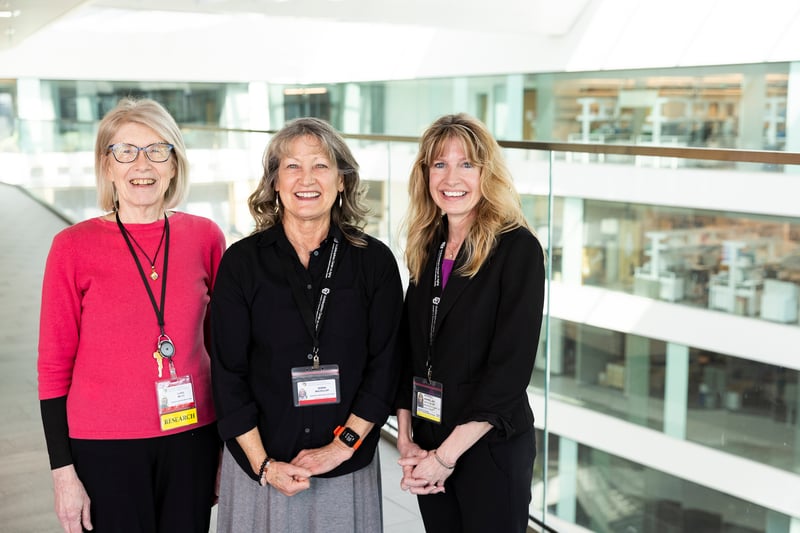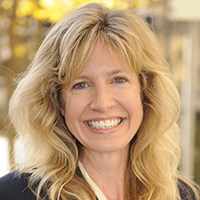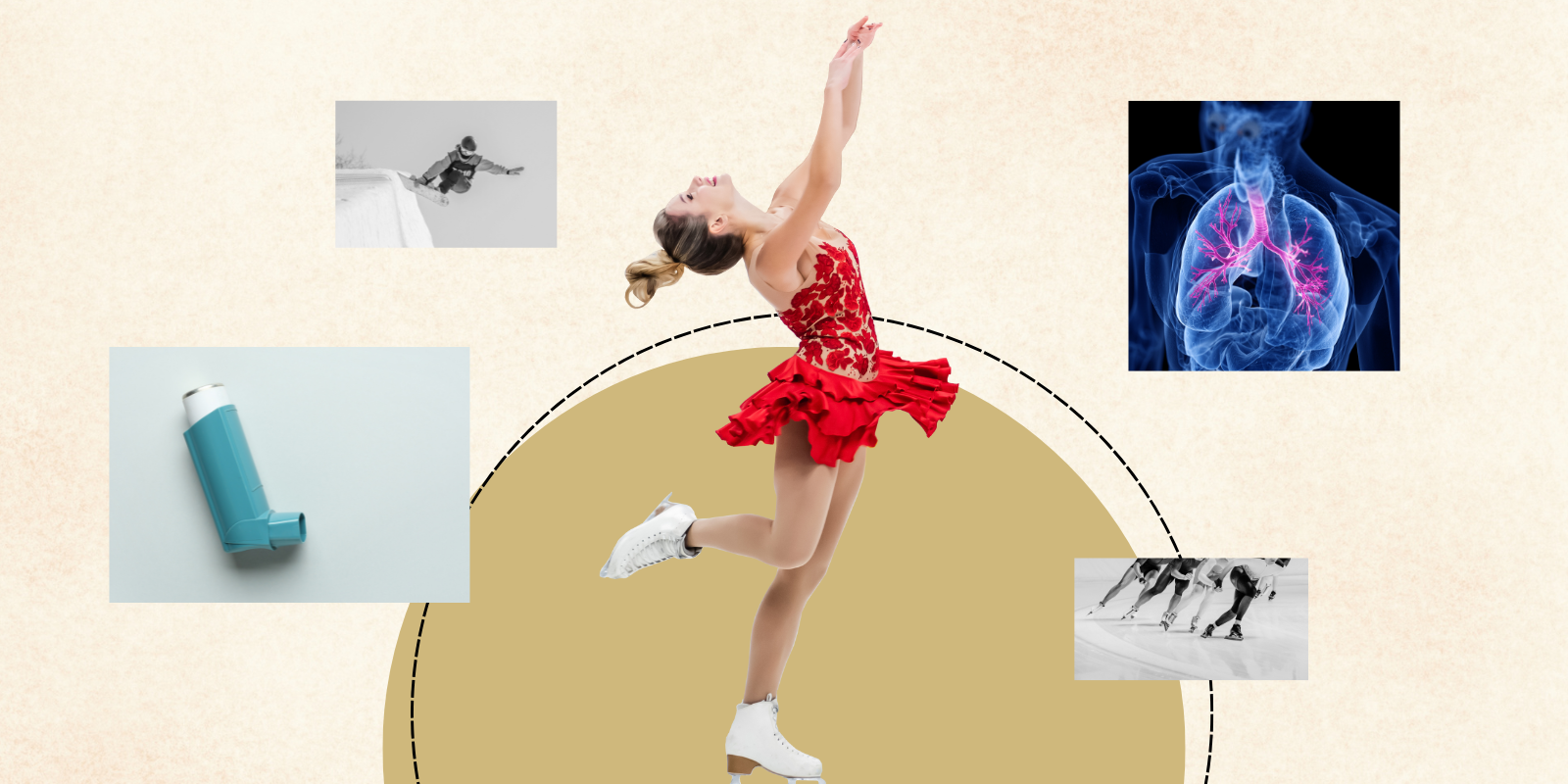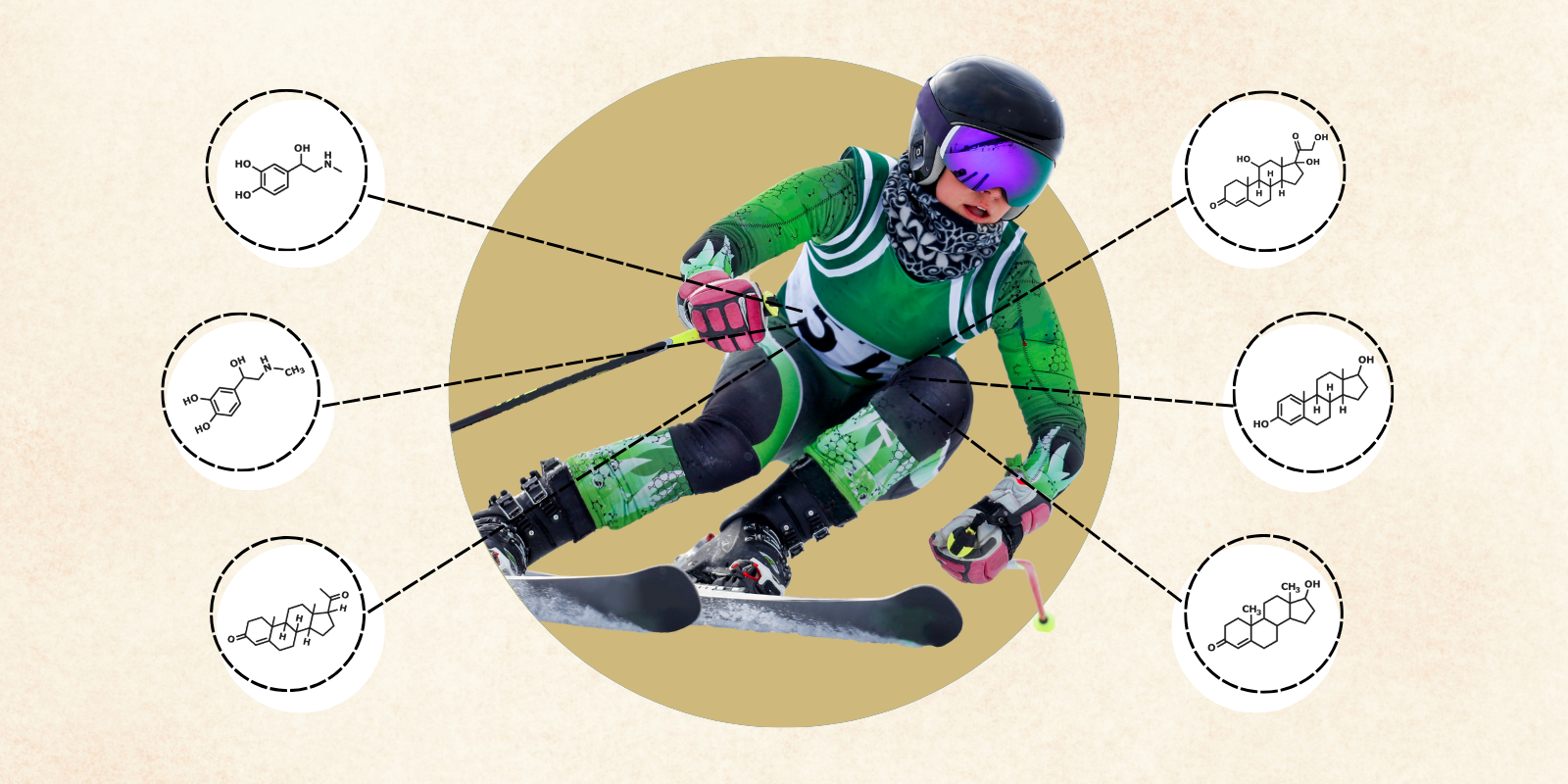Older adults have acquired lots of lived experience and transferable skills. A program at the University of Colorado Anschutz Medical Campus is tapping into those assets to help recruit older adults, and other underrepresented populations, into clinical trials, an objective that could help improve health care quality, outcomes, and equity.
Established two years ago, the Older Adults Research Specialists (OARS) training program already has drawn notice – including a shout-out in the latest edition of the Harvard Business Review.
The OARS program was launched in spring 2022 by Kathryn (Kady) Nearing, PhD, assistant professor in the Division of Geriatric Medicine of the University of Colorado Department of Medicine. She also is affiliated with the campus-wide Multidisciplinary Center on Aging (MCoA) and Office of Diversity, Equity, Inclusion, and Community Engagement.
The program enlists the talents of people over age 50 with the aim of diversifying the research workforce at CU Anschutz, and seeks to help address the underrepresentation of older adults from diverse backgrounds in clinical research – a shortfall that can have dire consequences for health, longevity, and quality of life.
OARS is designed around the idea that an important way to recruit and retain older adults in clinical trials is to enlist their peers in reaching out to them, especially when most research team members are much younger. The program was launched with help from a three-year funding award from the National Institute on Aging.
OARS training participants undergo a rigorous 14-week, 140-hour competency-based training that begins with the MCoA’s seven-week health navigator training program, followed by another seven weeks of research-specialist training.
Once training is completed, OARS are eligible to apply for full- and part-time paid positions with research units on campus. They fill various roles – from outreach, engagement, and education to facilitating the informed-consent process by helping participants understand the purpose, potential benefits, and foreseeable risks of a trial.
OARS also use their health navigation skills to identify barriers to ongoing study participation and connect study participants with community resources to address social needs. This work is essential to supporting study retention.
‘This job has surprised me’
Two cohorts are trained each year. The current cohort is the fifth and largest, with 18 older adults participating. Upon its graduation, 62 OARS will have been trained, ranging in age from 56 to 82, with an average age of 68. About 20 OARS have been hired so far. And there is a growing wait list for people wanting to be trained.
“I just love it,” says Debra MacKillop, a graduate of the first OARS cohort in spring 2022. “I’m very passionate about reaching groups of older adults and the sub-populations that are particularly underrepresented. This job has surprised me. I did not expect, at this point in my life, to be this excited and this committed to a job.”
Cari Levy, MD, PhD, division head of Geriatric Medicine, calls it “a transformative program for all involved.”
She adds: “I hired one of the OARS because I needed help with a grant, and I wanted to see firsthand what this program was all about. The woman I hired brings a perspective unlike any other. She sees things from her years of work and life experience and brings a refreshing perspective to our project.”
 From left, OARS graduates Carol Willis and Debra MacKillop with Kathryn (Kady) Nearing, PhD (center), assistant professor in the Division of Geriatric Medicine of the CU Department of Medicine. Photo by Justin LeVett for the CU Department of Medicine.
From left, OARS graduates Carol Willis and Debra MacKillop with Kathryn (Kady) Nearing, PhD (center), assistant professor in the Division of Geriatric Medicine of the CU Department of Medicine. Photo by Justin LeVett for the CU Department of Medicine.
Long underrepresented
Nearing notes that older adults are one of many populations that have long been underrepresented in clinical trials and other medical research studies. That’s particularly true for older adults from historically marginalized groups, who live in rural areas, or traditionally experience significant health care inequities and barriers.
“When we don’t have a group of people included in studies that lead to new health innovations and medical advancements, we don’t have the information we need about the safety and efficacy of these new products, such as new medications, for older adults,” Nearing says.
According to Nearing, in 2019, the last year before the COVID pandemic emerged, only 25% of CU Anschutz adult clinical trials enrolled even one participant over age 50. That same year, the National Institutes of Health issued a new policy requiring the inclusion of people across the life span in all NIH-supported clinical trials.
“We knew we needed to address this issue,” Nearing says. “We looked at the age distribution of the segment of our research workforce that was doing most of the recruitment for clinical trials and served as the key point of contact that might support someone’s retention in a trial. And we found that about 60% of the research workforce was age 44 and under.”
That “discordance” in ages, she says, led to the OARS program “to provide encore career opportunities for older adults to explore roles as part of clinical trial teams. OARS focus specifically on community-facing and participant-centered roles typically fulfilled by study coordinators.”
The program taps into the fact that many older adults are un- or underemployed, while others might be seeking meaningful encore careers.
The OARS program works in support of the Colorado Clinical and Translational Sciences Institute’s efforts to recruit diverse participants in clinical research.
Drawing on experience
Carol Willis is a graduate of the second OARS cohort in fall 2022. Willis was hired to help with neurology research, mostly involving Parkinson’s disease.
“My role is as a research recruitment specialist,” she says. “We get referrals from providers, and sometimes people contact us directly and say, ‘I saw something about this research study that I’m interested in.’ So, I talk with them about what studies this person fits with and do pre-screening, then pass them on to the study coordinator.” In this new role, Willis draws on her professional experience in communications, including designing training around intergenerational communication for business.
MacKillop brings to bear her experience in intergenerational engagement, social work, and counseling as an OARS. “I had a health navigation background already and worked with older adults, and I had a career decades ago as a lawyer and doing research. This kind of brought it all together.”
MacKillop wound up with the Division of Geriatric Medicine. She is involved in community Research Roadshows across the state, “where we pull the researchers out of their labs and take them on the road with us to talk with older adults and show them their studies. It’s also to educate older adults about the benefits of research for them.” She also works to support the OARS consult service “with research teams that are having challenges recruiting older people.”
Says Levy: “I have met many of the OARS currently employed by CU. They all have an energy and pride in the role they play on the campus. They are dedicated to the work because their work with older adults and on behalf of older adults is one of their core values. They have a north star, and it’s apparent in all they do.”
Photo at top: Kathryn (Kady) Nearing, PhD (center), assistant professor in the Division of Geriatric Medicine of the CU Department of Medicine, with OARS graduates Debra MacKillop (left) and Carol Willis. Photo by Justin LeVett for the CU Department of Medicine.




